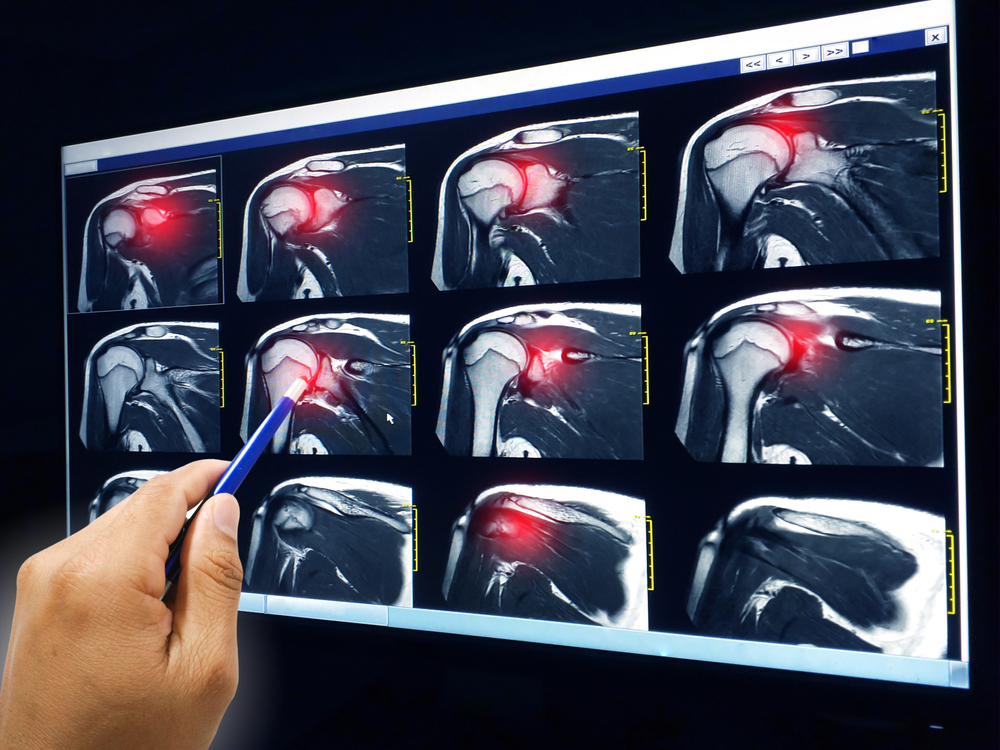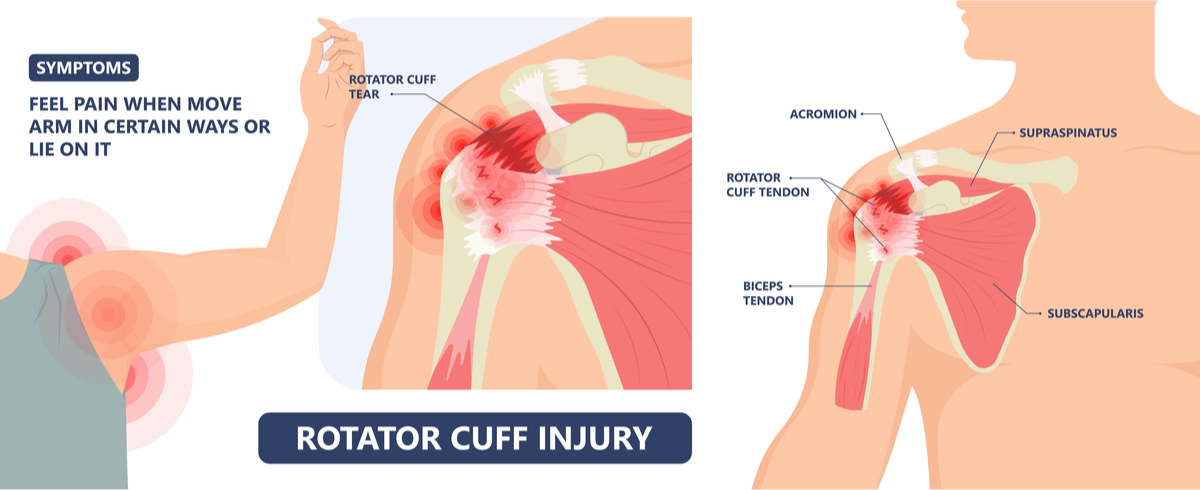
Spring and summer are seasons of high activity. Therefore, rotator cuff tears are a common summertime injury. Often, things like swimming, tennis, volleyball and other upper-body workouts are the types of activity that lead to rotator cuff tears.
Everyone knows: injuries happen. It doesn’t matter if you’re a pro athlete or weekend surfer. No one is immune to occasional breaks, scratches, cuts, tears or sprains. At Central Orthopedic Group, our goal is to help our Long Island patients recover from orthopedic injuries of all varieties quickly and safely. And here on Long Island, we’re entering the summertime. Of course, this is a reason to celebrate! Most of us love the warm weather, pool dips, beach visits and long days. However, it’s also important to be cautious and avoid sports injuries.
In this post, we’ll explore rotator cuff tears and provide the most essential information about these common injuries.
Types of Rotator Cuff Injuries
Tendinitis
Basically, the rotator cuff is a group of muscles and tendons surrounding our shoulder’s bones. In addition, these muscles are crucial to basic, ordinary motions like raising or rotating arms. On the other hand, tendons comprise a thick, resilient tissue that links our muscles to our bones.
Together, muscles and tendons keep the upper arm bones in place within our shoulder blades’ sockets.
Usually, rotator cuff tears affect these muscles and tendons. Of course, one of the most common rotator cuff injuries occurs when there’s inflammation or irritation in our tendons – tendinitis.
Partial or complete tears can develop in the tendons, which means that the connection between muscle and bone is severed. Often, torn tendons begin with fraying. Then, the damage gradually increases, and the tendon can completely tear when lifting something heavy or even doing something very simple.
Bursitis
Additionally, bursitis is a frequent catalyst for rotator cuff injuries. Basically, bursitis induces inflammation within the bursae. These are small sacs which contain fluid and limit the impact in the spots where bones meet to form joints. Each of our shoulder joints have numerous bursae that inflame, and as a result, cause a considerable amount of pain.
Often, rotator cuff injuries come from everyday, ordinary wear-and-tear from simple activities. Usually, these injuries are very gradual and take some time to form. In addition, rotator cuff injuries can occur from sudden impacts or collisions, like when we slip and fall on our arms or lift something that’s very heavy.

Rotator Cuff Injury Symptoms
Like many other injuries, a rotator cuff injury’s symptoms can range from barely noticeable to almost-unbearable. Their most common symptoms include shoulder pains that many describe as dull aches. Usually, patients lose considerable sleep when dealing with these injuries, as the pain keeps them awake throughout the night.
Of course, it’s difficult to execute any demanding tasks like heavy lifting or high-intensity sports. However, even the most menial, ordinary tasks that require moving the arm behind the back or even an inch above the head can be extremely painful. Additionally, there may be weakness in the arm throughout the recovery period.
Usually, the classic, gradual rotator cuff injury symptoms develop slowly. On the other hand, the symptoms of sudden, impactful injuries appear quickly and just as abruptly as the injury occurred.
Diagnosis/Treatment
Of course, our diagnosis begins with a thorough examination of the area. In addition, we’ll review your medical history and then check for any anomalies and evaluate your shoulder’s range of motion.
As with countless other injuries, imaging helps to identify the underlying issue. Doctors can see, with black-and-white clarity, the circumstances of your injury and proceed accordingly.
Ultimately, with any treatment, our primary goal is to eliminate your pain and restore movement to the shoulder joint. We recommend non-invasive, simple treatments whenever possible – like rest, pain medication, physical therapy and steroid injections.
Conclusion
Of course, if you suspect you may have a rotator cuff injury, make sure you see a doctor before it becomes a lot more painful and inconvenient. Like skiing and snowboarding in winter, summer’s a time in which to enjoy yourself, but not recklessly. Whether for rotator cuffs or any other sports injury, at Central Orthopedic Group we’ll diagnose and treat your injury with an emphasis on swift healing and mobility restoration.
